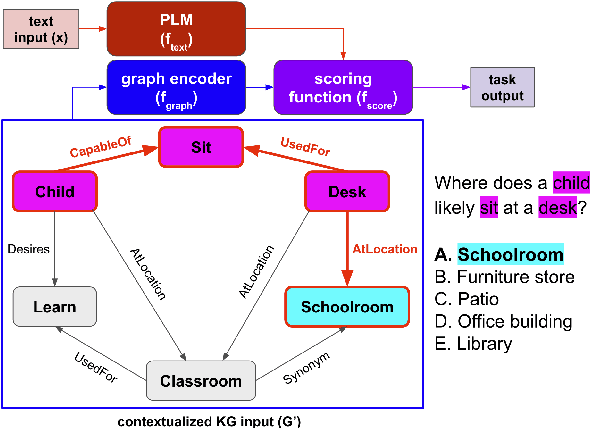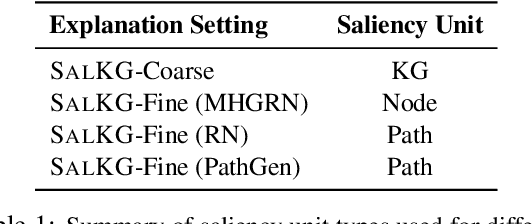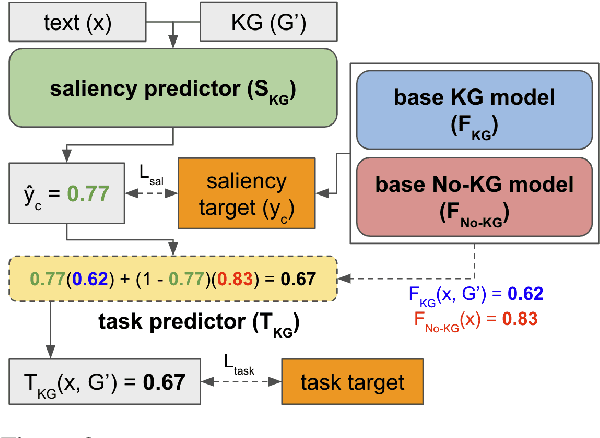SalKG: Learning From Knowledge Graph Explanations for Commonsense Reasoning
Paper and Code
Apr 18, 2021



Augmenting pre-trained language models with knowledge graphs (KGs) has achieved success on various commonsense reasoning tasks. Although some works have attempted to explain the behavior of such KG-augmented models by indicating which KG inputs are salient (i.e., important for the model's prediction), it is not always clear how these explanations should be used to make the model better. In this paper, we explore whether KG explanations can be used as supervision for teaching these KG-augmented models how to filter out unhelpful KG information. To this end, we propose SalKG, a simple framework for learning from KG explanations of both coarse (Is the KG salient?) and fine (Which parts of the KG are salient?) granularity. Given the explanations generated from a task's training set, SalKG trains KG-augmented models to solve the task by focusing on KG information highlighted by the explanations as salient. Across two popular commonsense QA benchmarks and three KG-augmented models, we find that SalKG's training process can consistently improve model performance.
 Add to Chrome
Add to Chrome Add to Firefox
Add to Firefox Add to Edge
Add to Edge